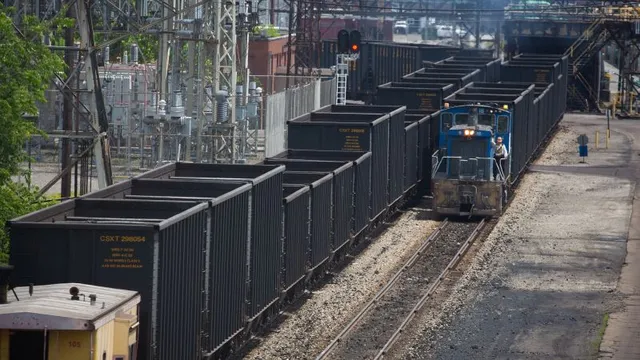
Cleveland Cliffs bids for US Steel mills amid closure threat
2024-09-06 12:02- US Steel threatens to close mills if its sale to Nippon Steel is blocked by the Biden administration.
- Cleveland Cliffs offers to buy the mills, claiming it has financing ready, while the union supports this move.
- The situation raises concerns about national security and labor relations, with potential implications for the steel industry.
Express your sentiment!
Insights
US Steel is facing pressure as it threatens to close several mills if the Biden administration blocks its sale to Nippon Steel. The company claims it needs $2.7 billion in investments from Nippon as part of a $14.3 billion acquisition deal. However, both the Biden administration and the United Steelworkers union oppose this deal, citing concerns over national security and a lack of trust in Nippon's commitments due to the absence of a contract with the union. Reports suggest that President Biden may announce a block on the deal soon. In response to the potential closure of the mills, Cleveland Cliffs has stepped in with an unsolicited offer to purchase the mills from US Steel, contingent on the Biden administration halting the Nippon deal. Cleveland Cliffs previously made an $8.3 billion offer for US Steel, which was rejected despite union support. The automakers have expressed concerns that a Cleveland Cliffs acquisition would consolidate too much steel production under one company, but they may reconsider if the alternative is mill closures. Cleveland Cliffs has stated it has the necessary financing to acquire the threatened integrated steel mills, which produce steel from raw materials. The situation has drawn criticism from various political figures, including Biden and Vice President Kamala Harris, who have voiced their disapproval of the Nippon Steel deal. Cleveland Cliffs CEO Lourenco Goncalves has condemned US Steel's threats as a form of blackmail against the government and the state of Pennsylvania. The unfolding events highlight the complexities of the steel industry in the U.S., where national security, labor relations, and corporate interests intersect. The outcome of this situation could significantly impact the future of steel production and employment in the region, as well as the broader economic landscape.
Contexts
Cleveland Cliffs has made a bid for U.S. Steel amid concerns that the Biden administration is poised to block Nippon Steel's $14.9 billion acquisition of U.S. Steel on national security grounds. This anticipated decision has led to a significant drop in U.S. Steel's shares and raised alarms about job security, with CEO David Burritt warning that the failure of the deal could jeopardize thousands of jobs. The White House's objections to the merger are supported by the United Steel Workers union and reflect broader concerns about foreign ownership in American manufacturing, particularly in key swing states like Pennsylvania where U.S. Steel operates. This situation underscores the importance of maintaining American control over critical industries, especially steel production, which is vital for national security. Japanese officials have expressed concerns that blocking the merger could damage U.S.-Japan relations and portray Japan as a threat, complicating the ongoing U.S. pressure on Japan regarding technology exports to China. The intersection of national security, economic interests, and international relations is highlighted in the steel industry as Cleveland Cliffs pursues its bid. As these developments unfold, the implications for job security and the future of U.S. Steel remain uncertain, with the Biden administration's stance reflecting bipartisan opposition to foreign ownership in the sector.